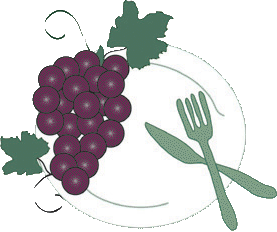
Story looks harmless enough: local entrepreneurs use an exotic sweetener to flavor their line of diet soda. That's the line Pee Eye reporter Andrea James swallowed in her piece today about a local soda called Zevia.
Here's the part the paper doesn't tell you: Zevia is one of the greatest "second act" stories of personal redemption in local history. It's also demonstrates how to avoid food labelling laws.
First things first: the cast of characters. And are they ever characters.
Derek Newman, an attorney and one of Zevia's three founders, was once the lawyer for Seattle's king of internet porn, Seth Warshavsky. Okay, so he was no doubt doing his duty as an ambitious young lawyer, upholding his professional oath to serve his client to the best of his abilities. And don't forget, that was 10 years ago.
Ian Eisenberg, another founder, is the son of Joel Eisenberg, the Seattle-based king of phone sex and sometime Warshavsky partner. Ian's own ventures include a decade of tech and internet startups like the failed Blue Frog Mobile, preceded by shady direct-mail dealings that ended with an FTC injunction to reimburse $24 million to defrauded consumers. Oh, and there were the offshore gambling websites, too, but they never amounted to much.
Both guys seem to have settled down, raised families (pictures of the kids on the Zevia website), and turned their lives around. What could be more American, right? We love these stories of sin and redemption, these come-back kids! Writes Newman on the Zevia blog" I have never been so satisfied professionally as I am here at Zevia." Wow.
So...what's in the can? Regular soda has to list the high-fructose corn syrup. Diet sodas that use artificial sweeteners like aspartame, sucralose and saccharine must mention them as well. But Zevia is made with stevia, a South American plant with a sweetish leaf and a metallic aftertaste, used as a sugar substitute by the earnest people who frequent health-food stores. But stevia's not approved by the FDA as a food, so the Zevia folks pitch stevia as an "all natural," zero-calorie dietary supplement, a trick that legally prohibits them from listing their ingredients. By the way, stevia is banned in Europe.
[CLARIFICATION: it's not ingredients they can't mention but calories, carbs, sugars and fats. Here's the back label.]
The whole Zevia concept, in fact, is a stroke of genius: diet soda as a dietary supplement! Of course, you can't sprinkle Zevia on your cereal like sugar, you have to, like, drink it, at $1 a can. Now, that's professionally fulfilling, alright.
You gotta hand it to Newman and Eisenberg for their ingenuity. And to the Pee-Eye for its unquestioning, starry-eyed profile. Gulp!
Posted by Ronald Holden at August 28, 2008 1:06 PM | TrackBack

The International Kitchen
Cooking school vacations in Italy, France & Spain.


 Who links to me?
Who links to me?